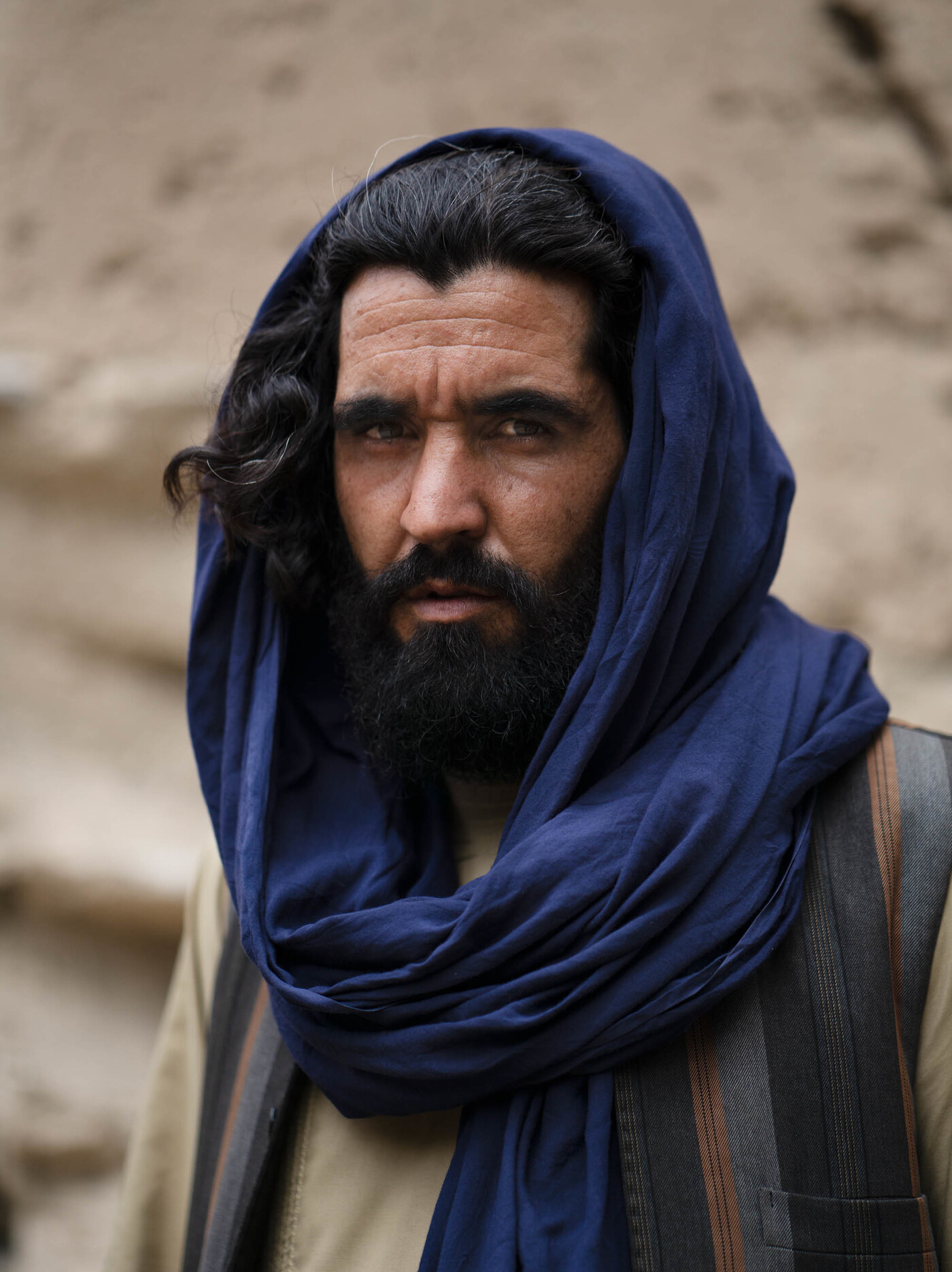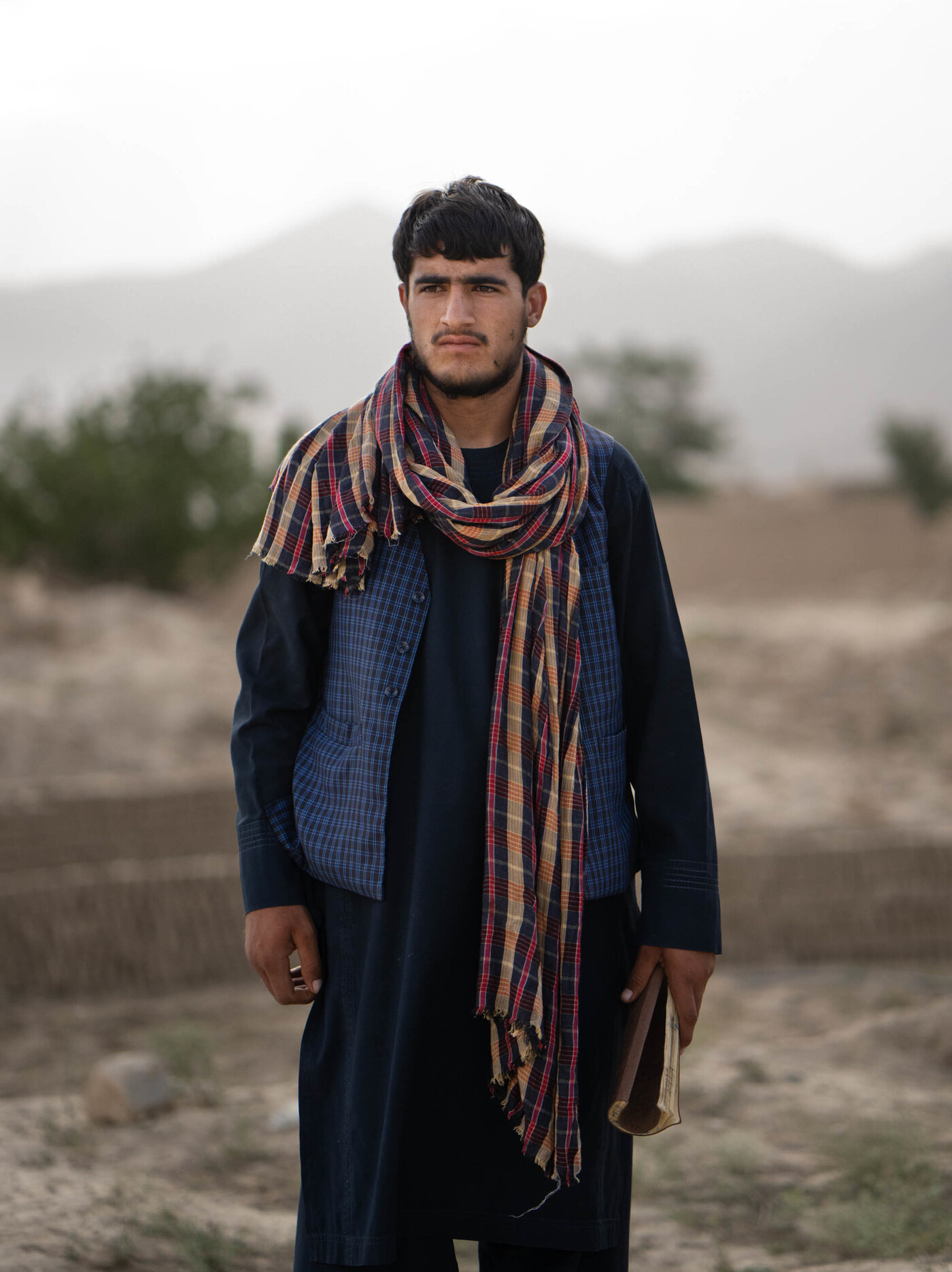
[ad_1]

A boy stands amidst trees in the Tangi Valley where a river and irrigation ditches water crops of tomatoes, sunflowers, grapes and apricots. During the war the remote mountain valleys were the scene of brutal combat and attacks on civilians.
Claire Harbage/NPR
hide caption
toggle caption
Claire Harbage/NPR

A boy stands amidst trees in the Tangi Valley where a river and irrigation ditches water crops of tomatoes, sunflowers, grapes and apricots. During the war the remote mountain valleys were the scene of brutal combat and attacks on civilians.
Claire Harbage/NPR
TANGI VALLEY, Afghanistan — One year after the Taliban captured Afghanistan, people see their new rulers one way in the city — and another way in the countryside.
The urban-rural divide was apparent during the war, when Kabul became a center of media, commerce, women’s rights and education, while remote mountain valleys were the scene of brutal combat and attacks on civilians.
Today, many Afghans in Kabul face fear and uncertainty. The radical religious movement has abolished democracy but hasn’t fully clarified the new rules of society. As an NPR team was leaving the country recently, a Kabul airport security officer learned we were bound for Washington, D.C., and said, “I wish I could come with you.”

Blast walls can be seen on the roadside while driving on Highway 1 through Wardak province.
Claire Harbage/NPR
hide caption
toggle caption
Claire Harbage/NPR

Blast walls can be seen on the roadside while driving on Highway 1 through Wardak province.
Claire Harbage/NPR
We heard a different perspective barely 50 miles outside the capital when we drove Highway 1 into Wardak province. It was one of the places we traveled to ask who’s included in Taliban-ruled Afghanistan.
The city’s blast walls and crowded streets gave way to dry mountains and green valleys. The pavement itself was cratered from 20 years’ worth of Taliban roadside bombs.
We traveled into the Tangi Valley, which is peaceful now. A river and irrigation ditches water crops of tomatoes, sunflowers, grapes and apricots. A closer look shows white Taliban flags marking graves in numerous cemeteries. For years this valley was a battlefield. Taliban forces resisted U.S. troops and their Afghan allies, once shooting down a U.S. helicopter with 38 people on board.

The now peaceful Tangi Valley was once a battlefield where Taliban forces resisted U.S. troops and their Afghan allies.
Claire Harbage/NPR
hide caption
toggle caption
Claire Harbage/NPR

The now peaceful Tangi Valley was once a battlefield where Taliban forces resisted U.S. troops and their Afghan allies.
Claire Harbage/NPR
We met Taliban fighters in the breezy, open-windowed guest room of the home of a man named Mursalin Mohammadi. The valley has endured an ongoing drought, but Mohammadi is well off. He pumps water for himself and his neighbors using solar panels on the roof of his mud-walled home.
A poster on Mohammadi’s wall showed photos of several Taliban commanders, all of them dead now. One of the commanders held something that, Mohammadi claimed, was the severed leg of an American soldier. It was impossible to verify that; U.S. troops try never to leave their dead on a battlefield — but there’s no doubt that many Americans were killed here.

Mursalin Mohammadi, 34, said he lost two brothers in the war.
Claire Harbage/NPR
hide caption
toggle caption
Claire Harbage/NPR

Mursalin Mohammadi, 34, said he lost two brothers in the war.
Claire Harbage/NPR
A surviving Taliban fighter showed us video of U.S. troops manning a base in the valley years ago, and seemingly firing indiscriminately at targets that are out of sight. Residents said they were less hostile to foreigners around the time that the U.S. installed a new government in 2001, but grew enraged at the U.S. and its allies in the following years for atrocities against civilians.
Hadiatullah Wahadat was the man with the video. “I did jihad against the U.S. forces,” he said. “Five times, I was wounded during the fight.”
Now 29, Wahadat said he began fighting when he was 16 years old. He said his side gained three things: “We expelled the foreigners. We triumphed. And we achieved an Islamic regime.”
Asked whether the Americans left behind any positive legacy, he mentioned the billions of dollars of U.S.-made weapons and military equipment that remain in the country.

Hadiatullah Wahadat, 29, says he fought through most of the war, and was injured five times.
Claire Harbage/NPR
hide caption
toggle caption
Claire Harbage/NPR

Hadiatullah Wahadat, 29, says he fought through most of the war, and was injured five times.
Claire Harbage/NPR
He drew a pistol from his loose clothing, with its maker stamped on the barrel: Smith & Wesson, Springfield, Massachusetts, U.S.A.
The fighters led us to a hilltop overlooking the Tangi Valley. White flags shuddered at a shrine to the dead. A mosque offered shade near the grave of a Taliban commander, Fazel Rabie.
Mohammadi, 34, said he lost two brothers in the war, one of whom is buried next to Rabie. As we stood by the graves we asked if the sacrifice was worth it. He didn’t hesitate.
“Yes, why not?” he said. “Why not?”
He added, “We are Muslim. We are following an Islamic system of government. That has meaning for us.”

Wahadat holds a Smith & Wesson pistol.
Claire Harbage/NPR
hide caption
toggle caption
Claire Harbage/NPR

Wahadat holds a Smith & Wesson pistol.
Claire Harbage/NPR
The Americans who once roamed this valley said they were bringing democracy and freedom. Mohammadi dismissed their way of thinking. He said Islam was made by God, and democracy by humans. It was obvious to him which was better. The idea that the two were once compatible in the former Islamic Republic was not how he saw it.

White flags stand over a shrine to the dead. Graves mark places for Mohammadi’s brother and the late Taliban leader, Fazel Rabie.
Claire Harbage/NPR
hide caption
toggle caption
Claire Harbage/NPR

White flags stand over a shrine to the dead. Graves mark places for Mohammadi’s brother and the late Taliban leader, Fazel Rabie.
Claire Harbage/NPR

Distant mountains can be seen from an archway of a mosque in the Tangi Valley.
Claire Harbage/NPR
hide caption
toggle caption
Claire Harbage/NPR

Distant mountains can be seen from an archway of a mosque in the Tangi Valley.
Claire Harbage/NPR
Yet as we left the Tangi Valley, we heard hints of disappointment. Local journalist Hekmatullah Waqid, who helped us meet the Taliban fighters, said that residents celebrated victory one year ago, but now worry about the ruined economy. They also want all girls to return to school. The Taliban have yet to allow many junior high and high school age students to study, though leaders insist they’re working toward it.
Farther south along Highway 1, we reached the village of Mali Khel, or what’s left of it. Gunfire has stippled the mud-walled houses that remain. Residents said the old Afghan government bulldozed many homes to clear a line of fire to the highway, where the Taliban planted roadside bombs.

Signs of rebuilding in the damaged village of Mali Khel.
Claire Harbage/NPR
hide caption
toggle caption
Claire Harbage/NPR

Signs of rebuilding in the damaged village of Mali Khel.
Claire Harbage/NPR
Eighteen-year-old Mohamed Yosad said most families in the village had to flee during the war. His family moved to Kabul. Now that the war is over they have returned to one of the homes that is still standing.
He held a math notebook and was studying for an exam. “I want to be a very big man in the future,” he said.

Mohamed Yosad, 18, fled with his family to Kabul during the war but has since returned to Mali Khel.
Claire Harbage/NPR
hide caption
toggle caption
Claire Harbage/NPR

Mohamed Yosad, 18, fled with his family to Kabul during the war but has since returned to Mali Khel.
Claire Harbage/NPR
Sherif Nazari, 55, told us he’s glad for peace. But the former road engineer, who lives astride this bombed out highway, cannot find a job. He said the government should pay to rebuild the village.
In the past that demand would have gone to the United States or its Afghan allies. Now the only authority is the Taliban.
The old saying holds that to the victors go the spoils. And that may be true, though something else went to the victors in Afghanistan. They also face the expectations of the people and the responsibility of governing, if they can.

Wahadat (center) stands in the ruins of the village of Mali Khel.
Claire Harbage/NPR
hide caption
toggle caption
Claire Harbage/NPR

Wahadat (center) stands in the ruins of the village of Mali Khel.
Claire Harbage/NPR
[ad_2]
Source link